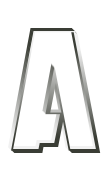Английский, как и любой другой язык, постоянно растёт и развивается. Однако английский наших школьных учебников почему-то остаётся прежним. Как апгрейдить свой английский? Вашему вниманию представляется список из 10 популярных устаревших слов и выражений и современные варианты их замены.
Язык — существо неоднозначное. Как любое живое создание, он непрестанно растет и развивается. Непреложным доказательством этому, в частности, являются постоянные изменения. Так в английском уже есть несколько пластов лексики, которая перестала быть актуальной для общения в среде носителей. Увы и ах, эта информация все никак не может дойти до некоторых преподавателей и моделей обучения. Давайте же разберемся, что и как на самом деле сейчас в английском.
Итак, что изменилось?
- Shall. Со школьных времен мы помним, что это — вспомогательный глагол, который используется с местоимениями I и We в будущем времени. Однако даже 10 лет назад его уже не использовали с этой целью. Он всё ещё встречается в разговорном английском самых разных регионов, но применяется только чтобы выразить готовность заниматься какой-то групповой активностью. Например, вы договорились с друзьями сходить в кино с оговоркой встречи возле входа. Как только к компании присоединяется последний гость, вы можете сказать: “Shall we?”, что будет означать “Ну что, пойдём?”.
- How do you do? Так уже никто не разговаривает. Вместо этого есть “How are you?”, “What have you been up to?”, “What have you been doing recently?”, “What’s up?” – и еще тысяча разных способов спросить о том, как дела. Как говорят во всех университетах, забудьте всё, чему вас учили в школе!
- Pupil. Если вы употребите это слово в общении с англоязычными людьми, они подумают, что вы говорите о зрачке, поскольку зрачок — тоже pupil. Если вы хотите сказать о младших школьниках, иногда уместно сказать schoolboy или schoolgirl. О более старших людях любого возраста и любого типа обучения принято говорить student.
- Telephone. В своё время этим слово называли стационарный телефон. Лет 5 назад люди массово побежали отключать их. Скажите честно, у вас всё ещё есть стационарный телефон? Вы всё ещё им регулярно пользуетесь? Нет? Тогда забудьте и это слово. О мобильных же лучше говорить phone или cellphone.
- To go in for sports. Да-да-да, мне тоже впечатали в мозг эту фразу, классе в 7-м. И всё же, имея за плечами тысячи часов общения в том числе с носителями, я ни разу 1. не использовала и 2. не слышала её в их речи. Вместо этого говорят to do sport / sports.
- What a pity! Так тоже никто не говорит. Если вам всё-таки хочется выразить жалость или сожаление по повод происходящих событий, можно сказать “What a shame!”, “It’s a shame!”, “That’s bad!”, совсем неформальными “Crap!”, “That sucks!”, “That stinks!”, или даже “I’m sorry”, что в конкретном контексте означает “Мне жаль”.
- Little, если речь идёт о размере. Слово всё ещё активно употребляется в разговорной речи в контексте количества или объема. Однако о размере лучше сказать small или даже tiny и другие более насыщенные слова.
- Refrigerator. Возможно, когда-то это слово и было актуальным для лондонской аристократии, однако как оно оказалось в отечественно-советских учебниках — загадка для всех, хоть сколько-нибудь знакомых с языком. Уже десятилетия намного более актуальным вариантом остается его сокращенная версия – fridge.
- Must. Слово всё ещё используется в разговорной речи, однако с развитием всепринятия и толерантности жёсткое “должен” в обществе звучит намного реже. Вариантами замены, помимо прочих, являются have to или should.
- It goes without saying. Само собой разумеется, этот оборот давно не встречается в англоязычной речи. Если вам хочется подтвердить достоверность происходящего, можно употребить certainly или definitely.
Не дайте своему английскому остаться на уровне устаревших учебников. Используйте те слова, которые на самом деле живут в разговорной речи носителей. Не расстраивайтесь, если не всё получается с первого раза. Ваш английский может стать лучше! Успехов в его изучении!
Больше информации про обучение английскому языку вы можете найти в блоге https://grade.ua/uk/blog/




















ОТВЕТИТЬ